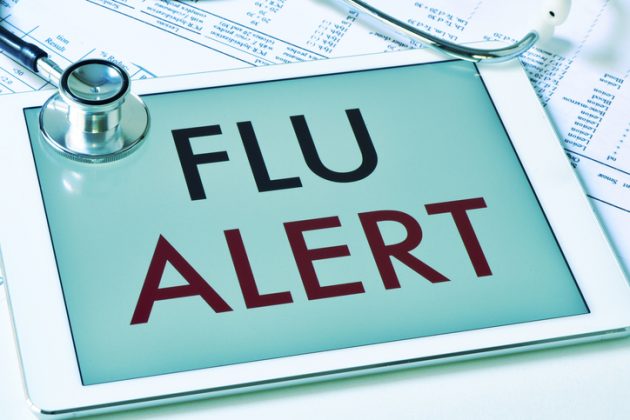At least 24 million people have had seasonal flu this season, according to estimates from the Centers for Disease Control and Prevention (CDC). Nearly 49,000 patients were admitted to hospitals with the flu for the week ending Feb. 1. Emergency department visits due to the flu remain classified as “very high” and “increasing,” the agency said. ED visits for COVID-19 are “low” and “decreasing,” while visits for respiratory syncytial virus (RSV) are “moderate” and “decreasing.” Overall respiratory illness activity causing people to seek health care is “very high.”
Seasonal influenza activity remains elevated and continues to increase across the country.
- During Week 5, of the 4,377 viruses reported by public health laboratories, 4,264 were influenza A and 113 were influenza B. Of the 3,458 influenza A viruses subtyped during Week 5, 1,857 (53.7%) were influenza A(H1N1)pdm09, 1,601 (46.3%) were A(H3N2), and 0 were A(H5).
- Outpatient respiratory illness is increasing and remains above baseline nationally for the tenth consecutive week. All 10 HHS regions are above their region-specific baseline.
- One human infection with an influenza A(H1N2) variant (A(H1N2)v) virus was reported.
- No new influenza A(H5) cases were reported to CDC this week. To date, human-to-human transmission of influenza A(H5) virus has not been identified in the United States.
- Ten pediatric deaths associated with seasonal influenza virus infection were reported this week, bringing the 2024-2025 season total to 57 pediatric deaths.
- CDC estimates that there have been at least 24 million illnesses, 310,000 hospitalizations, and 13,000 deaths from flu so far this season.
- CDC recommends that everyone ages 6 months and older get an annual influenza (flu) vaccine.
- There are prescription flu antiviral drugs that can treat flu illness; those should be started as early as possible and are especially important for patients at higher risk for severe illness.2




